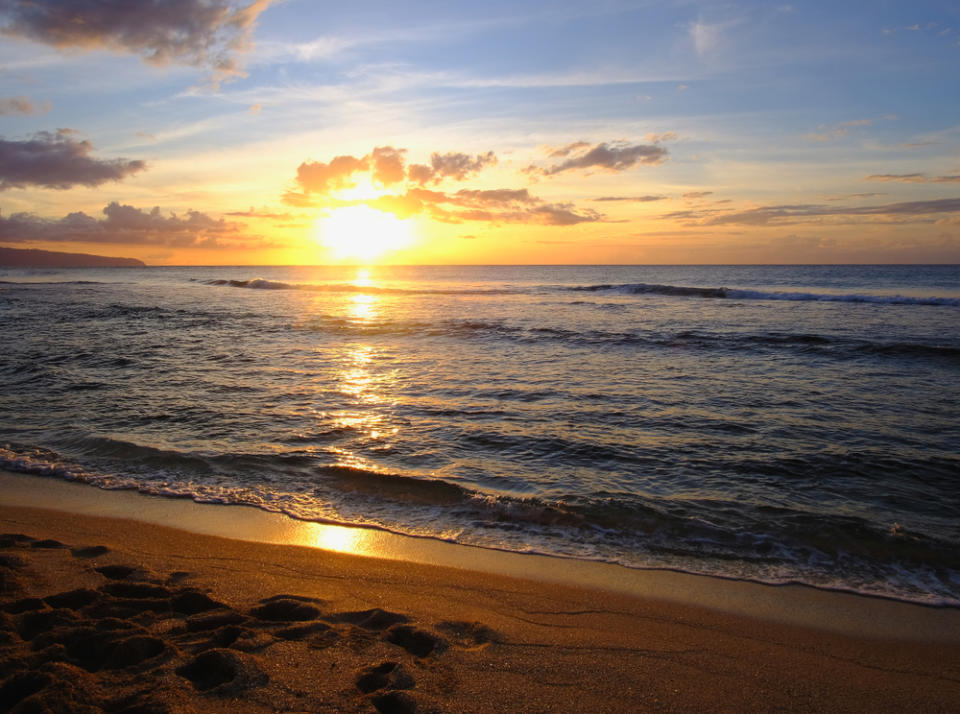A guide to Muscat
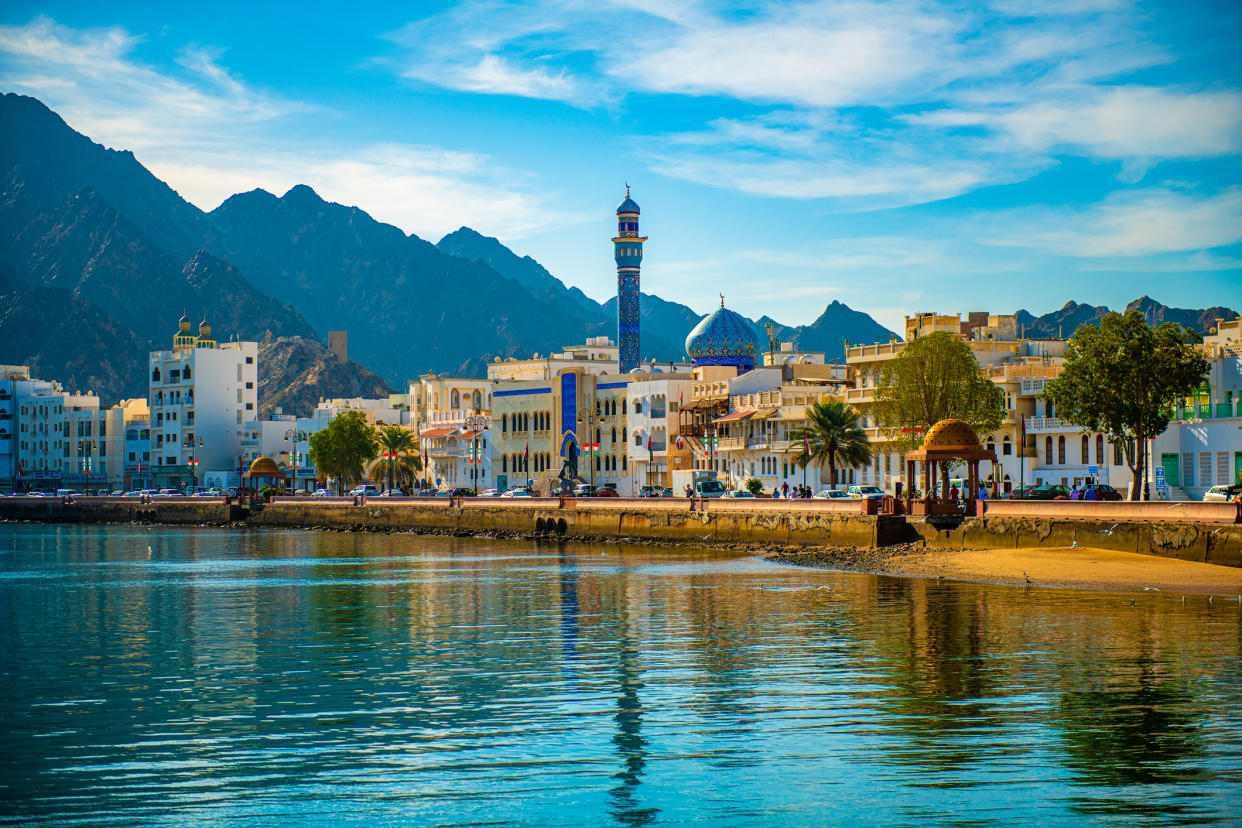
With its strong sense of heritage and diverse landscape of mountains, deserts and beaches, Muscat appeals to all kinds of travelers. Those looking for a little adventure can go scuba diving and snorkeling, while visitors who prefer to get a history lesson can explore the city's many forts, museums and markets.
What to see and do
Muscat is the capital city of Oman, a sultanate on the Gulf of Oman. Locals and tourists alike go to Qurum Beach and Pebble Beach to swim, relax, walk along the shore or just soak up the scenery. The water is teeming with marine life, and visitors can book a dolphin watching cruise or scuba diving excursion. Hikers can find adventure in the Al Hajar Mountains, the highest range in the eastern Arabian Peninsula, or in Wadi Ghul, outside of Muscat. Wadi Ghul is known as Oman's Grand Canyon, and peering out from the edge, visitors get a sweeping view of the gorgeous mountain scenery.
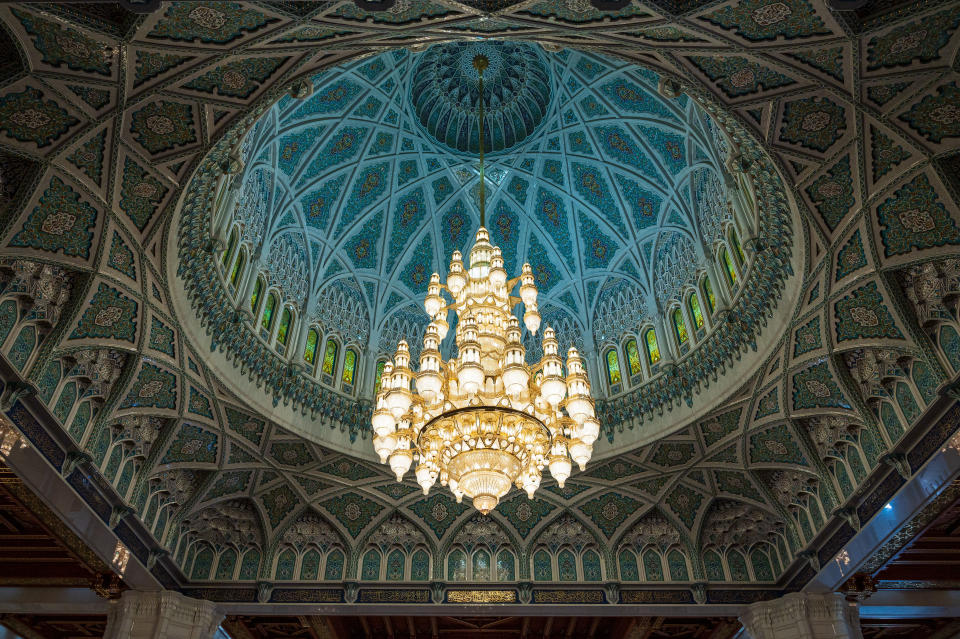
The Sultan Qaboos Grand Mosque offers a prime example of Oman's beautiful architecture, and can be explored with or without a guide. The mosque can hold thousands of worshipers, and is known for its impressive dome, massive prayer carpet and 8.5-ton gold-plated chandelier.
The Al Jalali and Al Mirani forts, built in the 16th century and located in Old Muscat, offer a glimpse into the country's past. This area is also home to the Al Alam Palace, which is closed to the public but can be viewed from the gates. To learn more about Oman's history, check out the National Museum across the street from the palace or Bait Al Zubair, a museum and gallery complex that showcases the vast private art collection of the Zubair family. The Oman Across the Ages Museum is in Nizwa, a 100-mile drive from Muscat, but it's worth the trip to see the brand-new facility celebrating Oman's past, present and future.
The Royal Opera House is equal parts performance space and architectural gem. Visitors can come for just a tour to see up close the motifs based on Islamic, Mughal and European art, or attend a performance. There's always something on the calendar, from opera to jazz concerts and ballets.
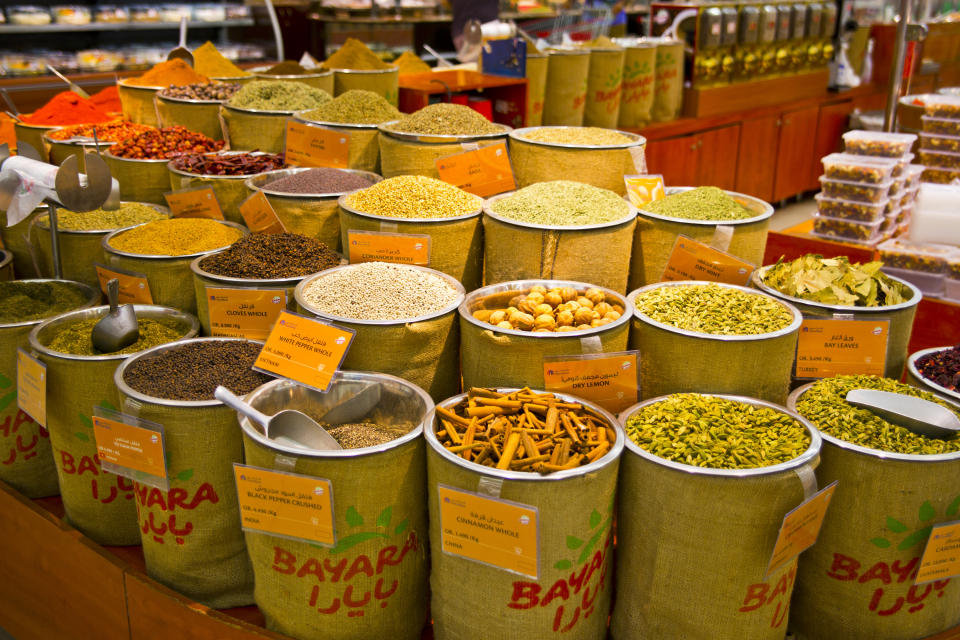
One of the most vibrant and authentic experiences in Muscat can be found at a souq, or marketplace. The Mutrah Souq beckons visitors with stalls containing spices, textiles and handmade crafts.
Where to eat
In Muscat, diners can enjoy fresh seafood, meals made with aromatic spices, and Omani delicacies like shuwa, a dish where lamb or goat is marinated before being cooked in an underground sand oven for up to two days.
At Bait Al Luban, you can try shuwa and other traditional dishes, like pakori, a fried vegetable dumpling with coconut and mint chutney, and shorbat dijaj ma shofan, a chicken and oat soup with a cardamom-infused broth. Keep the authentic experience going by ending the meal with luqaimat, a fried dough soaked in condensed milk, honey and saffron and date syrups. Sit by a window for beautiful views of the Mutrah Corniche.
Rozna also prepares specialities like shuwa and the seasoned rice dish qabuli. The restaurant is an homage to Omani culture, from its food to its architecture. There's a main gate that calls to mind Muscat's forts and castles, and an entrance with an iron handle reminiscent of the kind found in the city's historical walls.
Where to stay
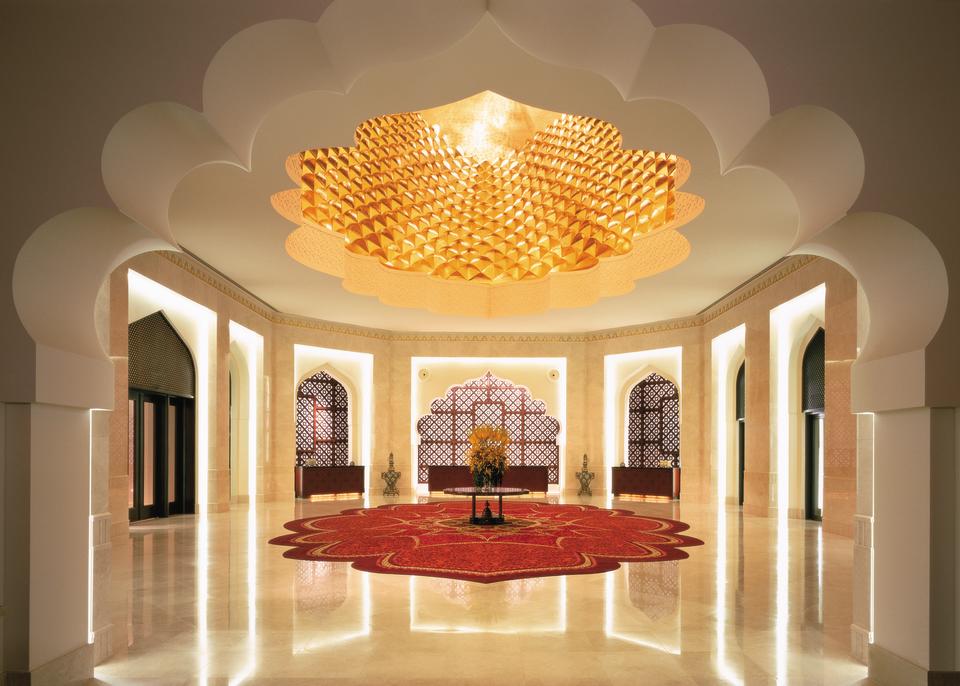
Shangri-La Barr Al Jissah is a hotel that offers much more than a place to sleep. It's also a cultural center, where guests can learn about Muscat and Oman, and take heritage tours led by the property's frankincense sommelier. There are two wings, each with its own style — Al Waha is "the oasis" and dedicated to families, while Al Bandar is "the town," a more relaxing choice for couples, small groups of friends and solo travelers. "Omani people are known for their warm hospitality and friendliness," General Manager Rene Egle told The Week. "Visitors to Muscat will experience the welcoming nature of locals, making them feel right at home."
The hotel has the only lazy river in Oman, as well as six pools, 13 restaurants, access to a private beach, and Luban Spa, where guests can indulge in frankincense-based treatments with ingredients grown in the Frankincense Garden. The hotel also offers a great vantage point to see turtles nesting and hatching along Muscat's pristine coastline. The beach is home to hawksbill and green turtles, and the hotel has a turtle ranger on site to ensure they are safe and protected.
